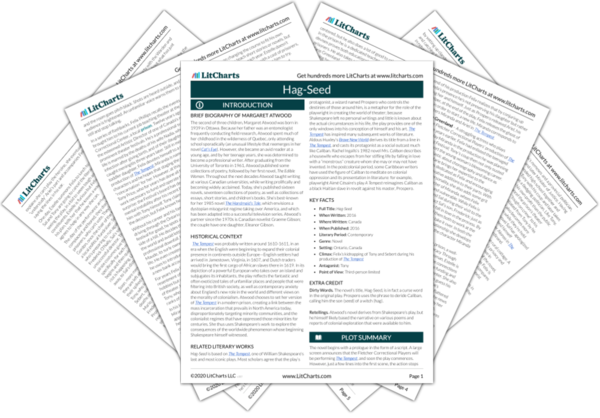himself will play Prospero; through the play he can be the protective and wise father that, in real life, he wasn’t. For the wizard’s famous , he decides on a cape made of unstuffed plush toys – fake rabbits, lions, tigers, and bears. The costume will reflect Prospero’s “supernatural but natural” abilities. He believes that
The Tempest will be the best play he’s ever done, although in retrospect he knows that his obsession with it was self-destructive, as it could never actually bring Miranda back to him.
